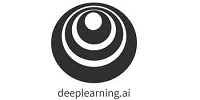Introduction to Artificial Intelligence (AI)
Artificial Intelligence (AI) is a rapidly evolving field that holds immense potential for the future. According to estimates, by 2030, the AI market will contribute more than $15 trillion to the world economy. This demonstrates the significant impact that AI will have on various industries and economies worldwide. However, the field of AI is currently experiencing a shortage of skilled professionals. Therefore, individuals who possess AI skills have a promising future-proof career ahead of them.
For those already in the workforce, re-skilling and up-skilling with future-oriented job skills like AI is more relevant now than ever. The demand for AI professionals is increasing as businesses across industries strive to implement AI in their processes and products. Therefore, learning AI opens up a world of opportunities for individuals, allowing them to explore diverse career prospects.

Combining Artificial Intelligence, Machine Learning, and deep learning can pave the way for a great career in AI. Understanding the interplay between these key concepts is crucial for professionals in this field.
Applications of Artificial Intelligence
The applications of artificial intelligence are widespread and can be seen across various industries and sectors. From healthcare and finance to mobile, automobile, smart home devices, music and movie recommendation services, retail, security surveillance, fraud detection, virtual player games, social media apps, AI has the potential to transform and enhance numerous areas of our lives. Almost every business is striving to implement AI in their processes and products to improve efficiency, accuracy, and user experience.

Learning AI equips individuals with the skills and knowledge to contribute to these areas and develop innovative solutions. It opens up avenues for professionals to work on cutting-edge technologies and be at the forefront of AI advancements.
Accessibility of Learning Artificial Intelligence
Learning artificial intelligence has become increasingly accessible, thanks to the availability of a variety of courses and training programs online. These courses are designed and taught by some of the best AI educators, researchers, and experts in the industry. The cost of these courses is often much lower than a typical college course, making them affordable for individuals looking to acquire AI skills.
Many of these online courses offer comprehensive curriculum equivalent to a traditional college degree. Some courses even provide a glimpse into the world of AI for free, allowing learners to explore the field before making a commitment. The flexibility and affordability of these online courses make them an ideal choice for anyone interested in learning AI.

Best Artificial Intelligence Courses and Programs
1. Machine Learning by Stanford University (Coursera)
Machine Learning by Stanford University is one of the most highly rated and popular AI courses available online. Created by Andrew Ng, a renowned expert in AI and Machine Learning, this course provides a comprehensive introduction to the core ideas of AI, machine learning, data mining, and statistical pattern recognition.
The course covers various topics, including supervised and unsupervised learning, regression and classification tasks, linear regression models, cost functions, machine learning algorithms, neural networks, decision trees, feature engineering, and more. It also includes programming assignments using Python, allowing learners to gain hands-on experience in implementing and applying machine learning techniques.
The Machine Learning course by Stanford University is often cited as one of the most important resources for anyone interested in learning AI and ML. It is suitable for beginners in the field of artificial intelligence and machine learning and provides the practical know-how needed to apply ML techniques to real-life situations.
2. Deep Learning Specialization by Andrew Ng (Coursera)
The Deep Learning Specialization by Andrew Ng is an advanced course series aimed at individuals looking to learn about AI and deep learning and apply them to solve complex problems and build a career in AI. This specialization is considered the next logical step after Andrew Ng’s Machine Learning course on Coursera.
The course covers the foundations of neural networks, deep neural networks, convolutional neural networks (CNNs), sequence models, and more. It explores the practical aspects of deep learning, including hyperparameter tuning, regularization, optimization, and building deep learning models using libraries such as Keras and TensorFlow.
The program includes real-world case studies and projects, allowing learners to apply deep learning techniques to a range of applications. It also features interviews and discussions with leaders in the field, providing valuable insights into the industry and career advice.

3. IBM Applied AI Professional Certificate (Coursera)
The IBM Applied AI Professional Certificate is designed for individuals who want to work as AI developers and gain a firm understanding of AI applications and use cases. Created by IBM, a global leader in tech and AI innovation, this program introduces learners to machine learning, data science, natural language processing, image classification, image processing, IBM Watson AI services, OpenCV, and APIs.
The certificate program is beginner-friendly and includes six courses that can be taken by learners with both technical and non-technical backgrounds. The courses cover a range of topics, including introduction to AI, using IBM Watson, building AI-powered chatbots, Python for data science and AI, building AI applications with Watson APIs, and introduction to computer vision.

The program offers a comprehensive curriculum and hands-on learning projects, allowing learners to create their own AI chatbot, build and train custom image classifiers, and develop a computer vision web application.
4. IBM AI Engineering Professional Certificate (Coursera)
The IBM AI Engineering Professional Certificate is designed for AI and ML engineers who want to advance their skills in machine learning and deep learning. This certificate program comprises six self-paced courses that cover a range of topics, including machine learning, deep learning, reinforcement learning, neural networks, and more.
The courses provide a deep understanding of machine learning and deep learning concepts, tools, and techniques. They cover topics such as supervised and unsupervised learning, Convolutional Neural Networks (CNNs), Recurrent Neural Networks (RNNs), optimization, inference algorithms, and building and deploying deep learning models using libraries such as TensorFlow and PyTorch.
The program includes hands-on labs, projects, and real-world case studies, allowing learners to apply their skills to solve complex problems. By completing this professional certificate, learners demonstrate proficiency in applied AI and gain industry-recognized credentials.
5. MicroMasters® Program in Artificial Intelligence by Columbia University (edX)
The MicroMasters® Program in Artificial Intelligence by Columbia University is a comprehensive graduate-level professional program that covers the foundations of AI, machine learning, robotics, and computer animation. The program is equivalent to 25% of the coursework required for a Master’s degree in Computer Science at Columbia University.
The program consists of four courses that cover topics such as AI algorithms, neural networks, machine learning problem framing, computer vision, natural language processing, and more. It includes hands-on exercises, quizzes, and projects that allow learners to apply their knowledge to real-world applications.
By completing this program, learners gain a deep understanding of AI concepts and techniques and earn a MicroMasters® program certificate from Columbia University, enhancing their career prospects in the field of AI.
6. Artificial Intelligence Nanodegree Programs (Udacity)
Udacity offers multiple Nanodegree programs in its School of Artificial Intelligence, catering to individuals at different levels of knowledge and experience. These Nanodegree programs provide comprehensive learning paths and practical training in AI skills, from beginner to advanced levels.
The Nanodegree programs cover a range of topics and career paths, including AI product management, machine learning, deep learning, computer vision, natural language processing, and more. Each program includes hands-on projects, programming assignments, and personalized support from industry experts and mentors.

The programs are designed to equip learners with the skills and tools needed to excel in AI-related roles and industries. They offer flexible timelines and schedules, allowing learners to progress at their own pace.
7. AI for Everyone by Andrew Ng (Coursera)
AI for Everyone is a non-technical course by Andrew Ng, aimed at individuals who do not need in-depth technical knowledge but want to understand how to make better use of AI in their organizations or work with AI teams. The course provides a comprehensive overview of AI concepts, applications, and the workflow of AI projects.
Key topics covered in the course include AI terminology, the realistic view of AI’s capabilities, spotting opportunities for AI implementation, understanding the workflow of AI projects, building AI strategies, and ethical and societal concerns surrounding AI. The course is suitable for professionals from diverse backgrounds, including managers, executives, engineers, and students.
By completing this course, learners gain a clear understanding of AI concepts, key terminology, and the practical considerations involved in working with AI teams and implementing AI initiatives.
8. Introduction to TensorFlow for Artificial Intelligence, Machine Learning, and Deep Learning (Coursera)
Introduction to TensorFlow for Artificial Intelligence, Machine Learning, and Deep Learning is a course on Coursera that focuses on using TensorFlow, a popular open-source AI framework, to implement machine learning and deep learning algorithms. The course is part of the TensorFlow in Practice Specialization by deeplearning.ai.

The course is suitable for software developers with some experience in Python coding and knowledge of machine learning and deep learning principles. It teaches learners how to use TensorFlow to build and apply scalable AI models to real-world problems.
The course covers topics such as machine learning foundations, computer vision, convolutional neural networks (CNNs), and image processing. It includes coding examples, programming assignments, and real-world case studies to provide hands-on experience in implementing and applying TensorFlow in AI projects.
9. Artificial Intelligence A-Z™: Learn How To Build An AI (Udemy)
Artificial Intelligence A-Z™: Learn How To Build An AI is a popular Udemy course by Kirill Eremenko and Hadelin de Ponteves. This course takes a practical approach to teach learners how to combine the power of data science, machine learning, and deep learning to build their own AI solutions for real-world applications.
The course uses game AI as a starting point, demonstrating how algorithms can beat games like Breakout and Doom. It covers the creation of AI for self-driving cars and offers insights into AI techniques not typically seen in other types of machine learning.
The course is beginner-friendly and requires no prior coding experience in Python. It includes step-by-step instruction and coding examples to guide learners through the process of building self-improving AI for various purposes.

10. Artificial Intelligence Course: Reinforcement Learning in Python (Udemy)
Artificial Intelligence Course: Reinforcement Learning in Python on Udemy is a comprehensive course on reinforcement learning. It focuses on using AI for stock trading and online advertising, covering advanced concepts and techniques in reinforcement learning.
The course assumes basic knowledge of AI theory and technical aspects and is designed for individuals looking to gain a deep understanding of reinforcement learning. Topics covered in the course include the multi-armed bandit problem, stochastic gradient descent, Markov Decision Processes (MDPs), Monte Carlo methods, Temporal Difference (TD) Learning, approximation methods, and more.

Throughout the course, learners will apply their knowledge to build AI models for stock trading and engage in practical exercises and projects to solidify their understanding of reinforcement learning principles.
Additional AI Courses
In addition to the aforementioned courses, there are several other AI courses available on various platforms. Here are a few more notable options:
– Master the Fundamentals of AI and Machine Learning on LinkedIn Learning

– Free AI Courses on Google AI
– Artificial Intelligence Courses on Coursera
– Free Artificial Intelligence Courses on edX
– AI Courses on Udemy
Conclusion
Artificial Intelligence is undoubtedly the skill of the future, with the potential to revolutionize industries and create countless opportunities. With the availability of online courses and programs, learning AI has become more accessible than ever before. Whether you are a beginner starting your journey in AI or an experienced professional looking to upgrade your skills, there’s a course or program suited to your needs.
By investing time and effort in learning AI, you can equip yourself with the knowledge and skills to excel in this rapidly evolving field. From machine learning and deep learning to applications in various domains, these courses provide a comprehensive understanding of AI concepts, applications, and practical implementations. Choose the best course or program based on your interests and career goals, and embark on your AI learning journey today.
